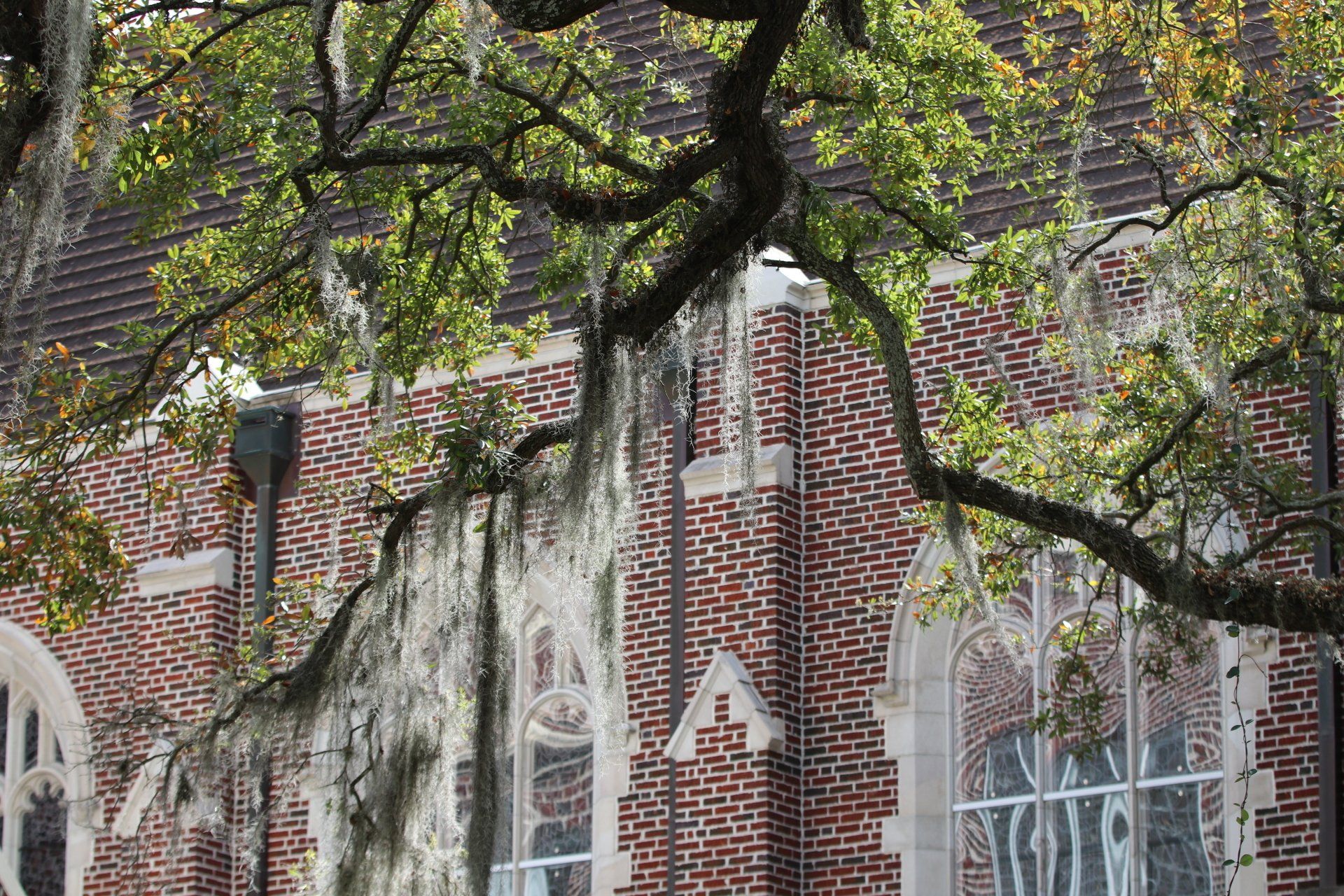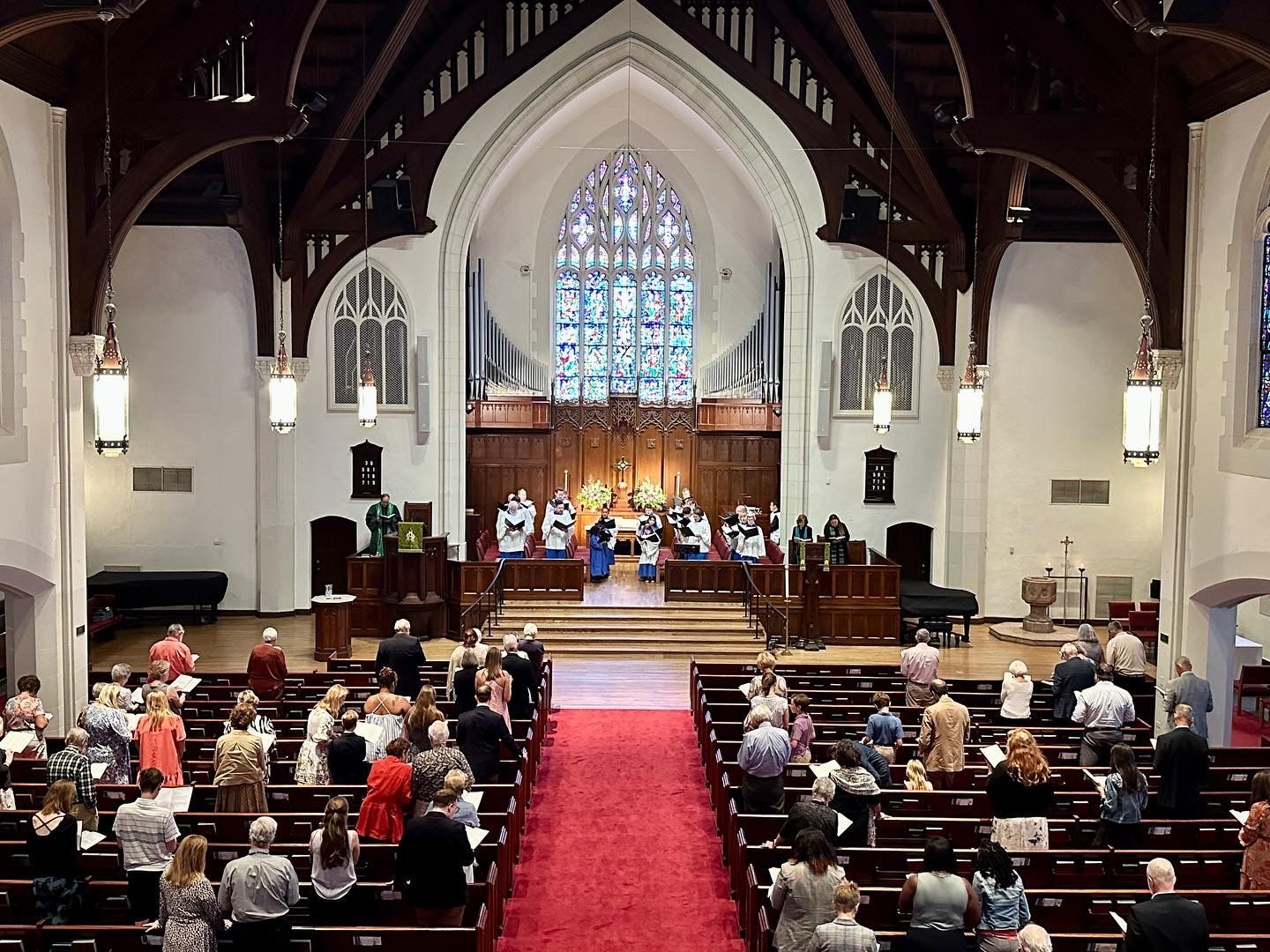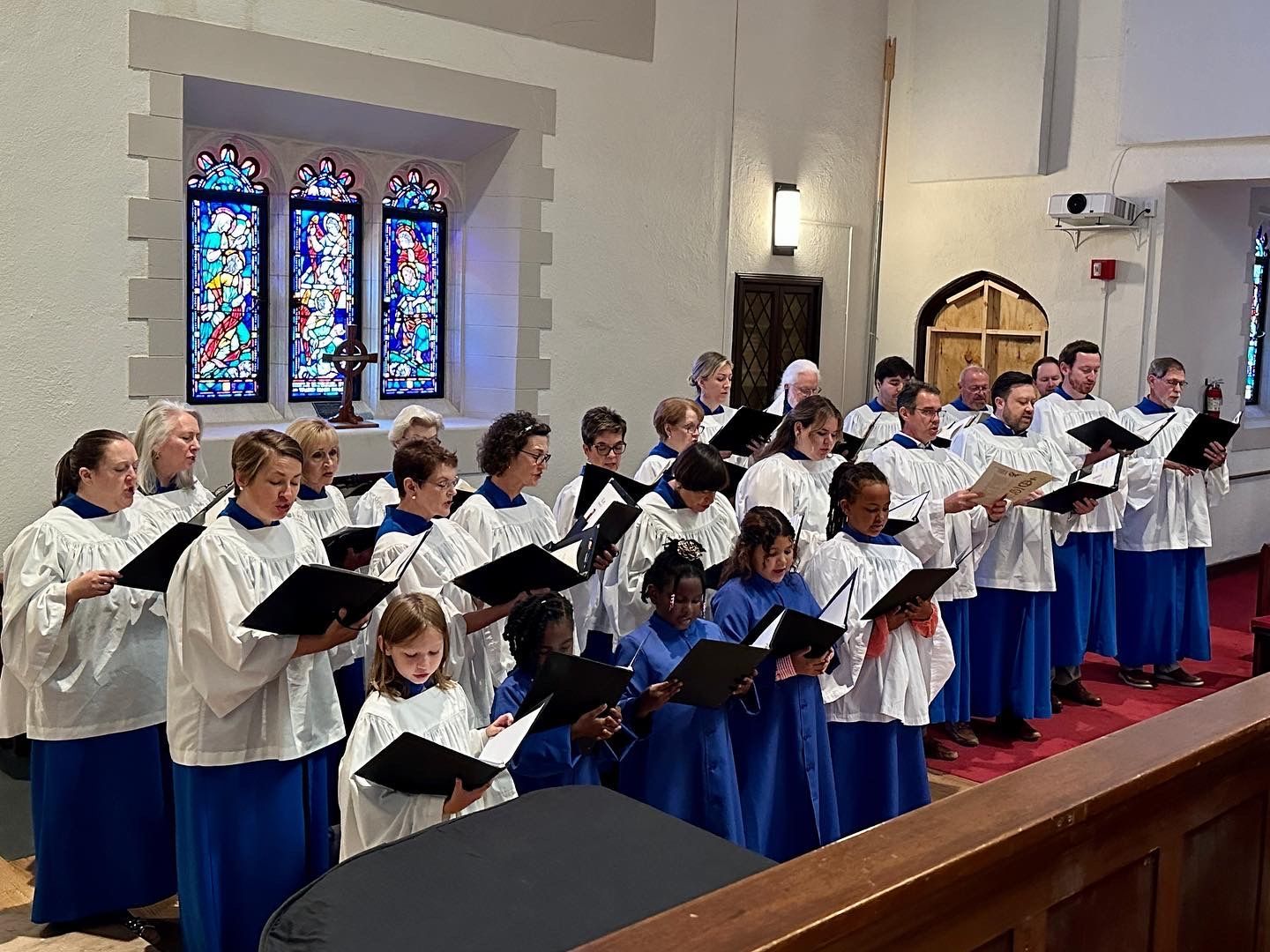Who We Are
Core Values: Belonging, Connecting, and Transforming
We Are A Movement for Reconciliation
2 Cor. 5:19 “In Christ, God was reconciling the world to himself… and has given us the ministry of reconciliation.”
The word reconciliation has its roots in economics. To “reconcile the books” means to balance the ins and outs, to square them. The same is true with what God has done for us in Christ - “all this is from God who ‘reconciled’ us to himself.” (2 Corinthians 5:18) Now that we have received the gift of reconciliation from God, our ministry, our mission, and our purpose is to become people who work toward reconciliation within our neighborhood and within ourselves. . In this world, there are many areas that cry out for reconciliation - areas where division, conflict, and tribalism have eclipsed our common humanity. This is why the Session and the staff at Riverside have adopted “Riverside: A Movement For Reconciliation” as our mission statement. All our ministries should be informed by and flow from this singular purpose. We continue to unpack what this means for Riverside and for each of us as we live, work, and grow together.
Affiliations -
Riverside Presbyterian Church is a PC(USA) congregation. Learn more at
PCUSA.org

From fall of 2023 until the spring of 2024, the Session of Riverside Presbyterian Church worked on a new document to accurately portray our church's values. Read more about our core values of Belonging, Connecting, and Transforming by clicking the button below.

We are a Matthew 25 congregation.
The PC(USA) Structure
PC(USA) Structure and Governing Bodies taken from "PC(USA) How it Works"
The governing bodies of the Presbyterian Church (U.S.A.) are: sessions, presbyteries, synods and the General Assembly. They are described below. All references in parentheses are to paragraphs in the Book of Order, the Constitution of the church. (G-9.0101) Session
The session governs a particular congregation. It is made up of elders elected by the congregation, plus all the installed pastors on the staff, including pastors, co-pastors, and associate pastors. (G-10.0101) The session is responsible for all decisions regarding the program and policies of its congregation, except for the two powers reserved for the congregation: the election of officers, including the pastoral staff, and the buying, selling, and/or mortgaging of church property. The constitution spells out 19 specific duties for the session. (G-10.0102, G-7.0304) The session is composed of elders elected for specific terms of service as well as the installed pastor(s) and associate pastor(s). It is presided over by the moderator, who is the pastor or a minister member of the Presbytery when the pastor is not available. (G-10.0101, G-10.0103, G-14.0201) The session elects its own clerk, who is called "Clerk of the Session." The clerk of the session must be an elder, but not necessarily one serving currently on the session. The session elects the clerk for such term as it shall determine. The clerk of the session has many duties regarding the records of the church, and also serves as secretary of meetings of the congregation. (G-9.0203, G-10.0300)
Riverside's History
In 1907, a Sabbath school was organized in the Riverside neighborhood, meeting in various homes and growing in enthusiasm from year to year. In 1909, an evangelistic tent meeting was held on Park Street. From the inspiration of this meeting, the guidance of God's Holy Spirit, and the already established Sabbath school, Riverside Presbyterian Church was born.
Today, Riverside is an exciting and active church known for its committed service to the local and global community as well as for standing up for and beside those whose voices go unheard. Though Riverside is deeply connected with the world of today, it remains rooted in the traditional approach to worship and music, creating a beautiful balance for spiritual growth in an ever-demanding and chaotic society.
Musical History
Since its inception, Riverside has expressed its love of God through music. This commitment to music-filled worship began with the installation of a 48 rank Möller pipe organ (Opus 5002) in 1928, shortly after the completion of our present sanctuary.
In 1943, Marshall Pierson was called to be the Organist and Choirmaster. He created a program of organ recitals (including a recital by Marcel Dupré in 1946) and choir performances that established Riverside’s reputation as a center for music and the arts in Jacksonville. This often involved cooperation and collaboration with other local congregations, which led to events such as Jacksonville’s first performance of Bach’s “The Passion According to St. Matthew” in 1949. Pierson’s commitment to musical education was also evident in his introduction of an organ scholar program and the implementation of a graded choir program, which at its height included seven ensembles for children and youth.
Andy Clarke continued this tradition of excellence when he joined Riverside as Organist and Choirmaster in 1980. During his almost 33-year tenure, he instituted Wednesday Happenings, an annual Patriotic Concert, and an annual Lessons and Carols worship service. Andy also blessed Riverside with his compositional skills, composing descants for weekly hymns, as well liturgical tunes that are used regularly in worship to this day. Ever the servant leader, the proceeds from Andy’s recordings completed while at Riverside were donated to various charities.
Following Andy’s retirement in 2013, Riverside called Dr. Lois Gurney to be our Director of Music. Lois was a true pastoral shepherd to the choirs of Riverside and nurtured the development of the love of music for many in our congregation. Lois was also an instrumental contributor to the installation of our new Colby-Walker organ in 2018.







